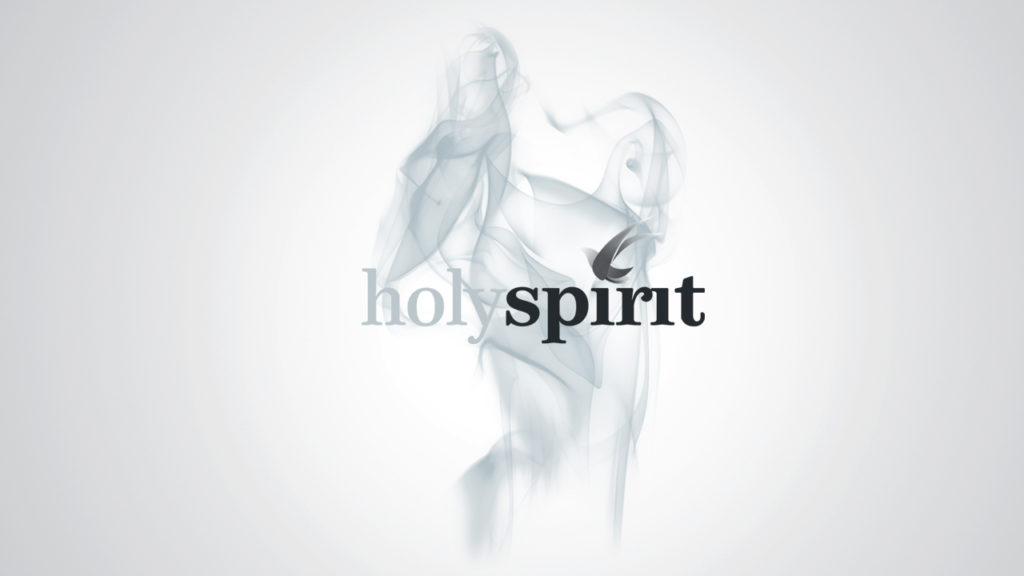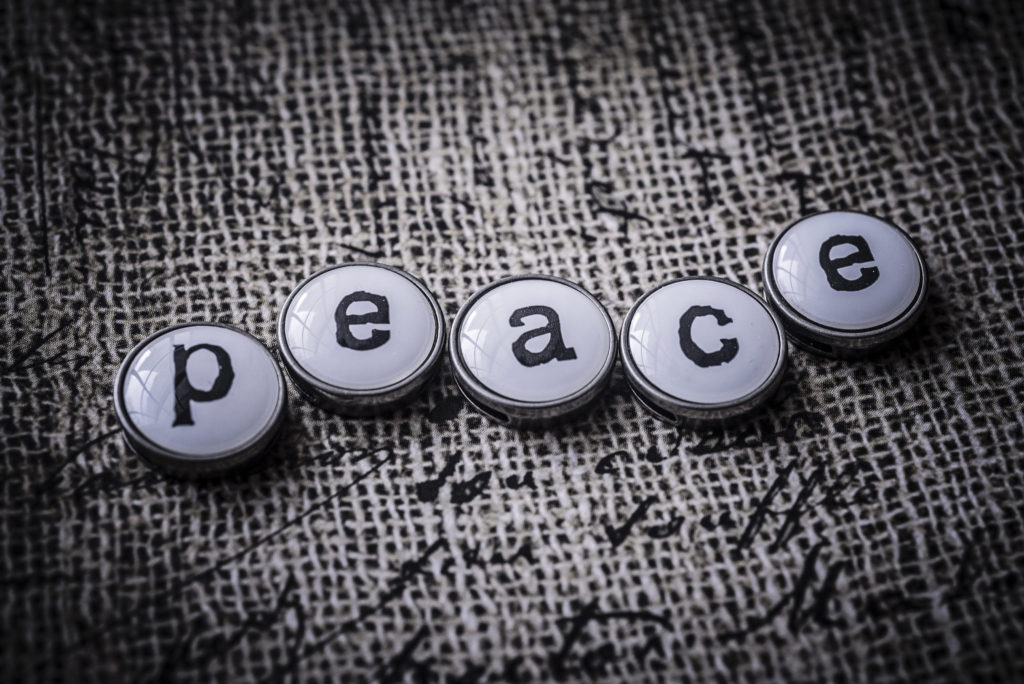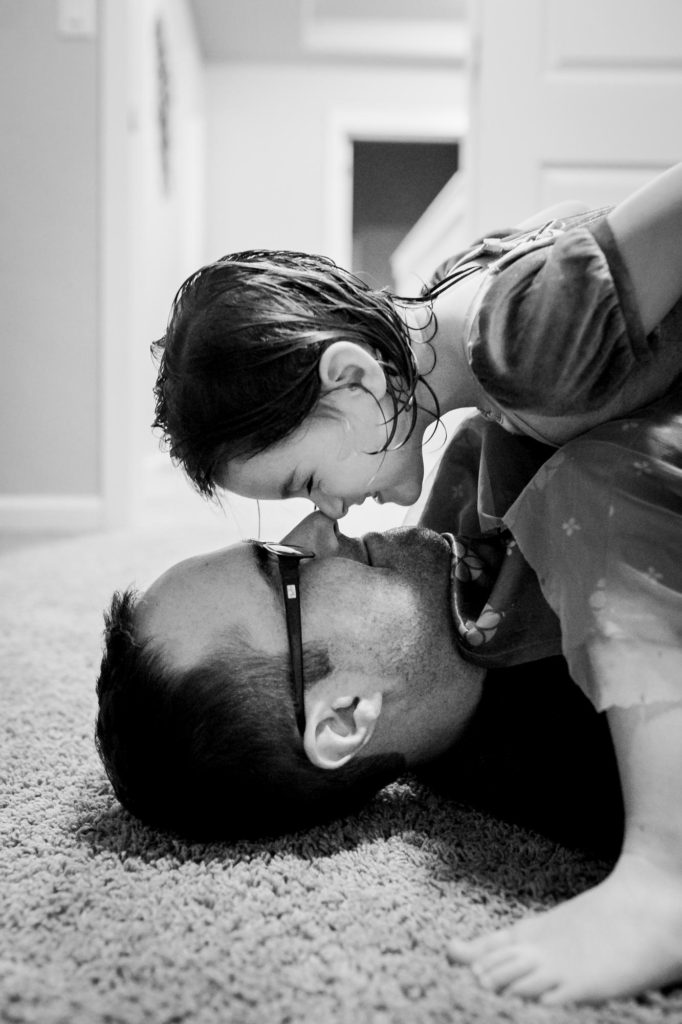


In the beginning the earth was without form and void and darkness was over the face of the deep. In these dark and ancient times there were no selfies. Yes, once upon a long ago, camera technology had not advanced enough to be able to turn a phone around to take of picture of oneself. Thankfully, we live now in an enlightened age.
What are we really doing when we take a selfie? What are we trying to capture? A moment in time? Our essence as an individual? An image we’d like to represent us? For better or worse, our selfies do capture some part of us.
Once upon a time when there truly was nothing, the immortal, invisible, and incalculable God of the universe chose to create mankind in His own image; to capture a sliver of His nature in frail, fallible, flesh. In the midst of creating hedgehogs and eagles and platypi (or is it platypuses?) God set about to create a creature that represented some essential elements of His character. In doing so, He made something different, something unique from all the other forms of life.
The Hebrew word used to describe humankind being created in the image of God is tselem and is used elsewhere to talk about stone and wooden idols made to represent false gods. While Jesus represents the nature of God fully, in some mysterious and completely undeserved way, we also represent the character of the Lord. Understanding this, author C.S. Lewis wrote: “There are no ordinary people. You have never met a mere mortal.”
This unique status has a litany of implications but perhaps the primary is that we are not mere accidents of biology or simply the most intelligent of animals but rather purposefully designed creations mysteriously molded after the fashion of our Creator. This fact alone should give weight and purpose to our being and a great deal of responsibility as well. In the same passage in which God describes His intention to create humans in His image, He also decrees that they would have dominion over the earth.
While we most often think of the word ‘dominion’ in the context of abuse (think domineering) or as an excuse to mishandle the resources given to us, a fuller understanding is one of authority AND responsibility. A king presides over a kingdom but he is also responsible for what goes on within. The Lord has dominion over every aspect of the universe. Similarly, we are to have dominion over the earth.
Our dominion is not limited only to earth’s physical resources (for which we are both entrusted and accountable) but also in creation, innovation, and progress. All humans are the product of an infinitely creative God. We express this imbued creativity when we create are (which author J.R.R. Tolkien called ‘imaginative sub-creation’), express skills, and develop technology which seeks the betterment of the human race.
Our status as image-bearers gives our life a divinely defined purpose and authority. We exist not by chance but by design and are entrusted to rule with wisdom over the resources, both physical and spiritual, not for ourselves with selfish intent but for the betterment of all. In doing so, we reflect the creative nature of our most excellent and boundless Creator.


The funny thing about children is that Jesus says that we’re supposed to be like them. When some of his disciples tried to stop some kids from coming to Jesus, He rebukes them saying, “Permit the children to come to Me; do not hinder them; for the kingdom of God belongs to such as these. Truly I say to you, whoever does not receive the kingdom of God like a child will not enter in at all.” All the disciples were probably trying to do was to keep a little order (anyone who’s been around children can appreciate the effort) and all of a sudden Jesus is threatening them.
He tells them that they must receive the kingdom of God like a child. Why?
Children are not what they will be. By very definition, children are not adults. They’re works in process. We have an intrinsic understanding of this. We don’t treat children the same way we treat adults (for better or worse). We don’t hold them to the same standards.
Children recognize and accept their weaknesses.
Children acknowledge and accept their need for help.
John, writing from exile, tells his readers, “See how great a love the Father has bestowed on us, that we would be called children of God; and such we are.” We are God’s children. If we are children, we need a parent to rely upon. We need to live in a perpetual state of humility, honesty, and dependence. To embrace this identity is to run to Jesus with arms wide without fear or pretension.


For we are his workmanship, created in Christ Jesus for good works, which God prepared beforehand, that we should walk in them. (Eph 2:10)
While the first portion of this verse from Philippians focuses on state of our identity, the second instead speaks to implications of that identity, namely, that we are created for good works. The God who shapes us and knits us together in our mother’s womb has preveniently assembled deeds for us to participate in.
Throughout the early Church as chronicled in the book of Acts, there is one actor who features prominently— the Holy Spirit. The Spirit is consistently described as the motivator for action, evangelism, and conversion. The text assumes the Spirit’s role so strongly in fact that there are times in which it almost de-emphasizes the actual actions of people, such as when it states that, “the Lord added to their number daily those that were being saved.” The Spirit was seen as the impetus for action.
One encounter illustrates this trend particularly well. Philip, chosen by the apostles to continue the ministry, was making his way from Jerusalem to Gaza at the instruction of an angel. As he walked along the road through a desert area, unbeknownst to him, an Ethiopian official was also passing through reading the scroll of Isaiah.
Philip is again prompted by the Spirit to run and join the official. He complies and finds that this official just happened to be reading a passage specifically about the Christ and proceeds to tell the man about Jesus, salvation, and the man responds by getting baptized before the Spirit speaks again and Philip is led away to preach the gospel elsewhere.
What we see vividly in this story is the Holy Spirit orchestrating events and leading Philip into positions to exercise his obedience; a divine conspiracy into which Philip is invited to participate.
The inescapable conclusion drawn from the history of the early Church is that the Holy Spirit leads believers into ministry. The book of Acts assumes this involvement. If we are truly God’s workmanship and our identity rests in being created in the image of God, then we must also come to fully accept the second half of Ephesians 2:10. We believe that the God who draws us to salvation also prepares good works for us to complete. We must learn to believe this and live in constant expectation of the Spirit’s leading. I think this is part of why the early Christians experienced so vividly the movement of the Spirit: they were expecting it. We can never realize the potential that God has prepared for us if we don’t understand that we have been given a directive. While our specific directives will vary circumstantially, our overarching purpose is the same one given by Christ to His disciples before His ascension: to be His witnesses. Intentionality is key however for without it the Christian life becomes mere passive assent. That is not the example lived out in the lives of the early Christians who lived and often died by the prompting of the Spirit.
If we are to realize and accomplish the good works the Lord assures He has for us we must train ourselves to live in expectation. Have you ever bought a new car, driven it off the lot, and only then realized how many other people are driving the same model? This is what our lives can become once we make ourselves alert for the Spirit’s prompting. If we watch and listen for it, we will hear it. When we take the additional step and act on it, we will truly be living out our identity as God’s workmanship.


Crisis can come in many ways. It can come swiftly and terribly as in a sudden death or a financial catastrophe. It can come slowly, a gradual creeping sorrow, depression, or hot tears in the heat of the night. Crisis, too, can be born of our own hands. Past misdeeds and current sins can arise to plague our souls and bring frightful consequences.
All of this crisis brings doubt; doubt that causes us to question perhaps even our deepest held beliefs or to doubt how a sinner as wretched as we could ever be saved.
Each of us has known or will experience the bitter dregs of doubt. It is one of the tempter’s greatest tools to stifle the Christian’s good works and rob her of her joy.
The Lord does not want us, however, to live in a constant state of doubt or consternation about our standing with Him but rather to live confident in our position and identity in Christ.
Though we see now only in part the reality of our salvation, we may yet have assurance both in the present and in the age to come. We can stand upon our identity as forgiven children of the Lord.
If we have put our faith in Christ and repent of our sins, Scripture tells us that we have peace with God here and now. We have been justified by faith and that none may now condemn us.
While we experience some of the effects of our salvation today, we will not fully understand it until we meet Christ in the next age. That does not mean that we cannot live confident in the assurance of our future glory however. “My sheep hear My voice,” Jesus told His disciples, “and I know them, and they follow Me; and I give eternal life to them, and they will never perish; and no one will snatch them out of my hand.”
When our thoughts are assailed by shadow and we cannot see the light of day, God’s word for us gives us the confidence to reject our fleeting thoughts and emotions and to instead rest on the truths received from the mouth of God. It may seem forced at times, this rejection, but so does the athlete’s training. On the day of the race though, the discipline proves its worth. When the history of our life is told, our tale will rest upon these moments of tempting and our response. Let it be that we persevere under the crisis and chaos just as the love of God toward us perseveres so that we would hear at our final hour, “Well done, good and faithful servant.”


I hate ticks. I mean nobody really loves those creepy arachnids (maybe there’s some overenthusiastic entomologist out there who gets a kick out of such things). The second I see one clinging to my pants or I even enter an area I think might be home to them, my heart begins to race and my breathing quickens. On a recent backpacking trip to Tahquamenon Falls, I was just settling into my tent for the evening when I discovered one crawling on my leg. This revelation started me down a full blown panic attack that lasted nearly three hours and only ended when I eventually fell asleep out of exhaustion around 2 am.
Considering the state of the world and the infinitesimally limited arena of things we have control over, there are endless things to be anxious about. When we rightly reckon our size in the scope of the cosmos we might very well be filled with anxiety.
But this is not the way the Lord desires us to live.
Paul writes in his letter to the Philippian church that believers should, “not be anxious about anything, but in everything by prayer and supplication with thanksgiving let your requests be known to God. And the peace of God, which surpasses all understanding, will guard your hearts and your minds in Christ Jesus.”
Paul presents here the method for combating anxiety. First, he sets the terms of his antidote: “do not be anxious about anything”. Not just small things. Not just big things. Nothing.
Secondly, Paul’s prescription for anxiety is to go to the Lord in prayer and plainly lay out our request. We should also do so thanking the Lord for who He is and what He has done already for us.
The next step is … well, there isn’t a next step, at least not one we accomplish. The next step isn’t something that we do but rather something that happens to us. The peace of God enters us and will guard our hearts (the seat of emotions) and our minds (the seat of cognitive will).
What I find most interesting is what is lacking from Paul’s formula. Nowhere does he state that the circumstances causing our anxiety will change. This distinction is remarkable since elsewhere in Scripture we hear about the efficacy of prayer. Here, however, Paul is dealing with our reaction to trials, not the trials themselves. Our attitude, Paul seems to maintain, should be one of peace regardless of what trouble circumstances bring. I imagine this is why Paul could claim that, “I have learned the secret of facing plenty and hunger, abundance and need. I can do all things through Him who strengthens me.”
Trouble will come. Jesus affirms this. Even the most stalwart of us knows the tug of fear on our heart. Though trials (both big and small) are guaranteed, we need not give in to our anxiety. With the comfort from our promised helper — the Holy Spirit, we can have victory over even the greatest worry and claim our true identities as people of peace.


Each May, Haydock Park in St Helens, England plays host to the Swinton Handicap Hurdle. During the annual running in 1994, veteran jockey Declan Murphy fell and was trampled by a horse behind him, shattering his skull in 12 places. The injury was so severe that the Racing Post published the headline: “Declan Murphy dies in horror fall.” In reality, Murphy remained in a coma for four days, awaking only hours before his life support would have been terminated. As he recovered, he was surprised to read his own premature obituary, especially because he had retained no memories of his past life of racing. Reading of his own death though, inspired the jockey to mount an improbable return to the track a few years later.
Death is an ending.
Paul tells us in Romans chapter 6 that believers are dead to sin but alive to God. Our old self, he explains, has died along with its slavery to sin, and that we now live new lives. Most pointedly, he encourages that: “you also must consider yourselves dead to sin and alive to God in Christ Jesus.”
As believers we have heard these words many times yet we rob them of their power when we rationalize them away. We fail to appropriate the change that has taken place when we confess and repent of our sin. We undermine the power we have been given through our ignorance. We don’t do so necessarily out of a desire to sin but usually because we are simply used to our old lives of slavery. We aren’t expecting the power and freedom brought through Christ. It is not natural in this world. It is, by very definition, supernatural. There is no longer any power that can bind us to sin and death. That former person died, legally and practically.
By acknowledging our new identities, we may truly realize the freedom and victory we have been given through Christ. Our struggles, addictions, and sinful tendencies, though disheartening, are all subject to the power of Christ. They are the trappings of a dead man. “It is no longer I who live, but Christ who lives in me.”
We will still be tempted. Our thoughts betray us still. That struggle will continue bring us pain, but freedom is now ours in Christ. We are no longer bound to the shackles of sin. Like Declan Murphy, by reading our ‘obituaries’— the truth of our death to sin— we can have confidence to go forward boldly into our new lives. It is no longer we who live enslaved to sin; we are new beings, men and women joined now with Christ: new creations with a new identity.


There are few exhortations more challenging than Paul’s call in 1 Thessalonians to “rejoice always”. It seems often that we as believers are defined less by our identity as people of joy than we are by our pessimism. If we are honest, many of our decisions are born not out of a joyful spirit but out of fear or the anticipation of despair. Part of this is the result of a mindset that is too world-centered and part of it is the practical ramifications of a 24 hour news cycle and social media. There is always some potential sorrow lurking out in the darkness. Many of our actions are rooted not in godly confidence but in a tempered fear of failure. This temptation away from joy and towards fear is as historical as it is contemporary though. Believers have always struggled to be defined by joy.
The first step towards remedying this is realizing that joy is not the same thing as happiness. A day in which everything goes our way at work, our spouse greets us at the door, the children behave, and the sun sets in a glorious display may bring us happiness but it is shallow compared to the joyful confidence found in Christ.
Secondly, joy is not defined by the absence of sorrow. Joy is the exercise of faith and the rejection of despair. Sorrows and adversities are the refining fire by which our faith is tested. It is in these moments that joy is most required.
As believers, we can have joy independent of troublesome circumstances for we know that the Lord is powerful, sovereign, and good. In His power we know that he is capable of accomplishing that which He sets His mind to. In His sovereignty, we learn that His dominion is over all things. There is no corner of the universe where God’s will is absent. The knowledge of the Lord’s goodness and faithfulness teaches us the He loves His children and seeks their good in all circumstances. These attributes allow the believer to rise above the sorrows and affairs of the day and rest securely in trust in the Lord.
A.W. Tozer writes that, “Christianity at any given time is strong or weak depending upon her concept of God.” When our understanding of the Lord is lacking or we place preconceived limitations on God’s ability to have victory over difficulties we can find no joy. A god who is small cannot be trusted to conquer over the trials of the day let alone the forces of evil. We cannot find joy in a small god. We can only realize our identity as people of joy when we are able to trust that the Lord has the power and will to bring us through trouble.


The psalmist prays that he would be preserved like “the apple of [God’s] eye” and Jesus later confirms that the God who sustains the sparrows and the flowers of the field takes a far greater interest in the care of His children.
Somehow, in spite of our grand insignificance and the infinite complexity of the universe, the Lord of all creation reserves for us a place in His heart. He peers through the lives of the billions upon billions who live and have lived and sees our single flickering light.
I imagine too, that He views us much as I viewed my daughter, with loving intent even as we offer our flawed and inconsequential offerings back to Him. Though no other eye could find value in our lives of little consequence, He lovingly accepts our lives as the earnest yet erring gifts of those He has chosen and adopted.
When we begin to see our identity through the eyes of God, we are set free from our infernal quest for significance through our own hands. It has been said that “worth, value, and beauty is not determined by some innate quality but by the length the owner would go to possess them.” If this is true (and it is), then we are truly valued indeed and we can begin living not to prove our significance but to honor the One who already sees us as such.


In the spring of 2006, Linda Avey, Paul Cusenza, and Ann Wojcicki met together to discuss how they could market personal genomics and biotechnology to the consumer market. Based in the fertile tech environment of Santa Clara County, California, the company they formed would provide genetic testing and genealogical DNA research for the individual consumer. Though there would be bumps along the way, the company they formed, 23 and Me, would eventually boast over 5 million customers and be valued at over $1 billion, allowing individuals to learn about their genetic health and ancestry; about who they are at the cellular level.
Identity matters.
Though the term has become a buzzword, there is certainly power behind knowing who we are as a community and as individuals. Knowing who we are provides a bedrock that remains firm and allows us to base our decisions and choices on something other than immediate pressures and shifting winds.
As Christians, our identity needs to come from somewhere other than ourselves. Simply crafting for oneself an identity based on whims or even strongly held beliefs will always leave us wanting when the pressure on our life becomes too great.
After enumerating his familial and liturgical resume, Paul, in his letter to the Philippians, states: “Indeed, I count everything as loss because of the surpassing worth of knowing Christ Jesus my Lord.” Paul’s identity was not rooted in anything that he brought to the table either in lineage or personal achievements. Instead, his entire identity was contained in knowing and being known by Christ.
Knowing our identity in Christ provides us with the foundation to live a life as foreigners and exiles in this world. Only when we are rooted to the person of Jesus Christ can we navigate the affairs of the day. By understanding what is true of us as children adopted into the family of God we can navigate the challenge and nuance of living out that truth.
Beyond this, an understanding of our identity provides a greater impetus for behavioral change than willpower or discipline ever could. These efforts, as necessary as they are, must be bound in an understanding of our place as believers. The early Christians, who heard and treasured their Lord’s parting assertion that they “will be my witnesses” naturally bore this out in the way they established the church and became evangelists for their risen Lord. In the same way, an understanding of who we are in Christ will organically influence our actions and decision-making. Once we know who we are, we are then free to live out that identity.


Follow Christ Together
There is going to be a day (or many days) when you are going to ask yourself why you even bother to be part of a church at all. It’s going to happen. No matter how mature the community of believers or how orthodox the theology, there are going to be moments when you’re just want to run off and head for a solitary cabin in the woods. It’s inevitable. It’s inevitable because every single person in your church is just like you, flawed, imperfect, and often unintentionally hurtful.
So even with all of our eccentricities and failings, why keep at it? Why continue to follow Christ together instead of on our own?
We were designed to GATHER together in community.
The short and definitive answer is that we were designed by God to meet together and experience Christ together. Based on their understanding of corporate worship and communal spiritual life in the nation of Israel, the earliest believers implicitly understood that gathering together was critical to their realized faith in Christ. So to it is for us.
In fact, the writers of the New Testament seemed to take involvement with a larger group of believers as a given and spent little time exhorting believers to be part of a church. What they do spend a considerable amount of ink on, is encouraging believers to live together in unity. The church is the first place that we demonstrate our love for each other. It is not enough to love in theory. The church is where we are able to love in practice and deed. The church is that opportunity.
We GROW best in the context of community.
Beyond being an outlet for the love we have been given in Christ, the church is our opportunity to be encouraged and encourage others to follow Christ more closely. Through experiences such as worship, preaching, discussions, and prayer (among many) we grow and are stirred towards obedience by the words AND witness of fellow believers. The church is not simply a location for believers of Jesus to congregate but rather an entity in which the Spirit of God ministers to the individual and the corporate.
We are sent to GO out in mission from a place of community.
In addition, the church serves as a jumping off point for ministry and missions; a place for believers to be equipped for ministry as we fulfill our individual and corporate command to go into the world and make disciples.
We follow Christ together because it is the way we were made. We follow Christ together because it is how we best grow. We follow Christ together because in doing so, we honor Christ by loving each other.